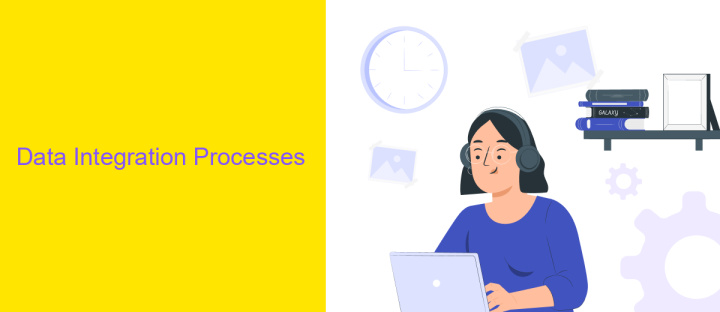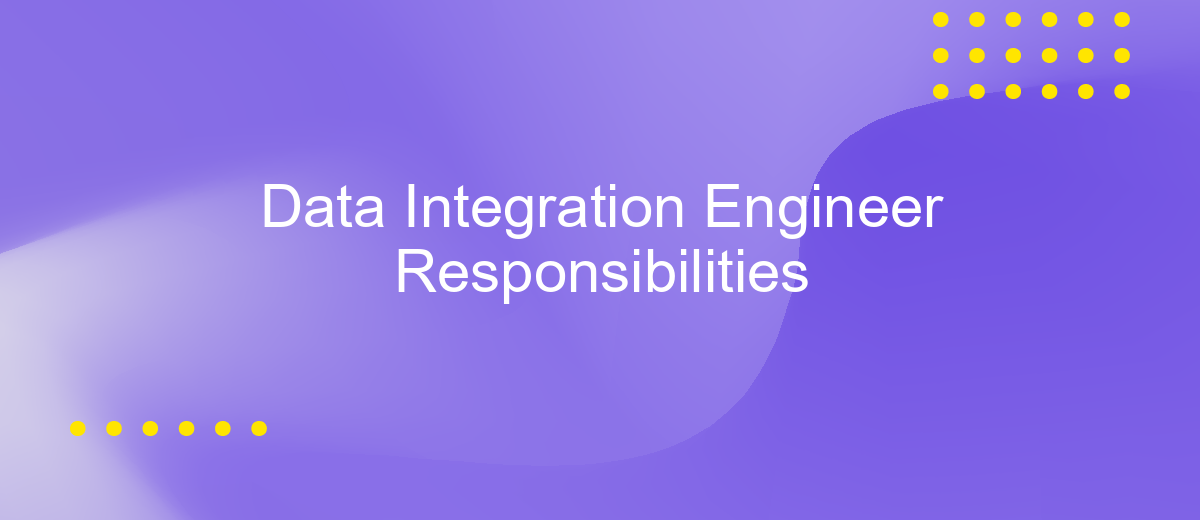Data Integration Engineer Responsibilities
A Data Integration Engineer plays a crucial role in modern data-driven organizations by ensuring seamless data flow between various systems and platforms. This position involves designing, implementing, and managing data integration solutions to support business intelligence, analytics, and operational needs. In this article, we will explore the key responsibilities and skills required for a successful career as a Data Integration Engineer.
Introduction
The role of a Data Integration Engineer is pivotal in today's data-driven world. These professionals are responsible for ensuring seamless data flow between various systems, enabling organizations to harness the power of their data effectively. By integrating data from disparate sources, they help businesses gain valuable insights and make informed decisions. A Data Integration Engineer must possess a blend of technical expertise and problem-solving skills to manage complex data ecosystems.
- Designing and implementing data integration solutions
- Maintaining and optimizing data pipelines
- Ensuring data quality and consistency
- Collaborating with cross-functional teams
- Monitoring and troubleshooting data integration processes
In summary, Data Integration Engineers play a crucial role in the modern enterprise by bridging the gap between various data sources and systems. Their efforts ensure that data is accurate, timely, and readily available for analysis, which ultimately drives business success. As organizations continue to prioritize data-driven strategies, the demand for skilled Data Integration Engineers will only continue to grow.
Data Integration Processes

Data integration processes involve the consolidation of data from various sources into a unified and cohesive dataset. These processes often require the extraction, transformation, and loading (ETL) of data to ensure that it is accurate, consistent, and ready for analysis. Effective data integration enables organizations to gain comprehensive insights and make informed decisions by leveraging data from multiple systems and platforms. This often involves the use of specialized tools and technologies that facilitate seamless data flow and integration.
One such tool is ApiX-Drive, which simplifies the process of connecting disparate data sources. ApiX-Drive allows for the automation of data transfer between various applications, ensuring that data is synchronized and up-to-date. By using ApiX-Drive, businesses can streamline their data integration efforts, reduce manual intervention, and minimize errors. This not only saves time but also enhances the reliability of the integrated data, enabling more accurate and timely business intelligence.
Key Responsibilities

As a Data Integration Engineer, you will play a crucial role in ensuring seamless data flow across various systems and platforms. Your primary responsibilities will include designing, developing, and maintaining data pipelines that facilitate efficient data integration and transformation processes. You will work closely with data analysts, data scientists, and other stakeholders to ensure data accuracy and availability.
- Design and implement data integration solutions to support business needs.
- Develop and maintain ETL (Extract, Transform, Load) processes.
- Collaborate with cross-functional teams to gather and analyze data requirements.
- Monitor and optimize data pipelines for performance and reliability.
- Ensure data quality and consistency across different data sources.
- Troubleshoot and resolve data integration issues promptly.
- Document data integration processes and workflows.
- Stay updated with the latest data integration technologies and best practices.
In this role, you will be expected to have a strong understanding of data integration tools and techniques, as well as excellent problem-solving skills. Your ability to adapt to new technologies and work in a fast-paced environment will be key to your success as a Data Integration Engineer.
Qualifications and Skills

To excel as a Data Integration Engineer, candidates must possess a unique blend of technical expertise and problem-solving skills. A strong educational background in computer science, information technology, or a related field is essential. Additionally, hands-on experience in data integration, ETL processes, and data warehousing will set you apart from other candidates.
Proficiency in programming languages such as SQL, Python, and Java is crucial for this role. Familiarity with data integration tools like Informatica, Talend, or Apache Nifi is highly desirable. Moreover, a deep understanding of database management systems and cloud platforms will be beneficial.
- Bachelor’s degree in Computer Science, Information Technology, or related field
- Experience with ETL processes and data warehousing
- Proficiency in SQL, Python, and Java
- Knowledge of data integration tools (Informatica, Talend, Apache Nifi)
- Understanding of database management systems and cloud platforms
- Strong problem-solving and analytical skills
- Excellent communication and teamwork abilities
In addition to technical skills, effective communication and the ability to work collaboratively in a team environment are critical. A successful Data Integration Engineer should be detail-oriented, capable of handling complex data challenges, and committed to continuous learning and improvement.
- Automate the work of an online store or landing
- Empower through integration
- Don't spend money on programmers and integrators
- Save time by automating routine tasks
Conclusion
In conclusion, the role of a Data Integration Engineer is pivotal in ensuring seamless data flow across various systems and platforms. These professionals are responsible for designing, implementing, and maintaining data integration solutions that support business operations and decision-making processes. Their expertise in handling ETL processes, data warehousing, and real-time data integration is crucial for the organization's success.
Moreover, leveraging tools like ApiX-Drive can significantly enhance the efficiency and effectiveness of data integration tasks. ApiX-Drive offers robust solutions for automating data transfers and synchronizing information between different applications, reducing manual efforts and minimizing errors. By utilizing such advanced tools, Data Integration Engineers can focus on more strategic initiatives, ultimately driving innovation and growth within the organization.
FAQ
What are the primary responsibilities of a Data Integration Engineer?
What skills are essential for a Data Integration Engineer?
How does a Data Integration Engineer ensure data quality?
What challenges might a Data Integration Engineer face?
Can you recommend any tools for automating data integration tasks?
Apix-Drive is a universal tool that will quickly streamline any workflow, freeing you from routine and possible financial losses. Try ApiX-Drive in action and see how useful it is for you personally. In the meantime, when you are setting up connections between systems, think about where you are investing your free time, because now you will have much more of it.


